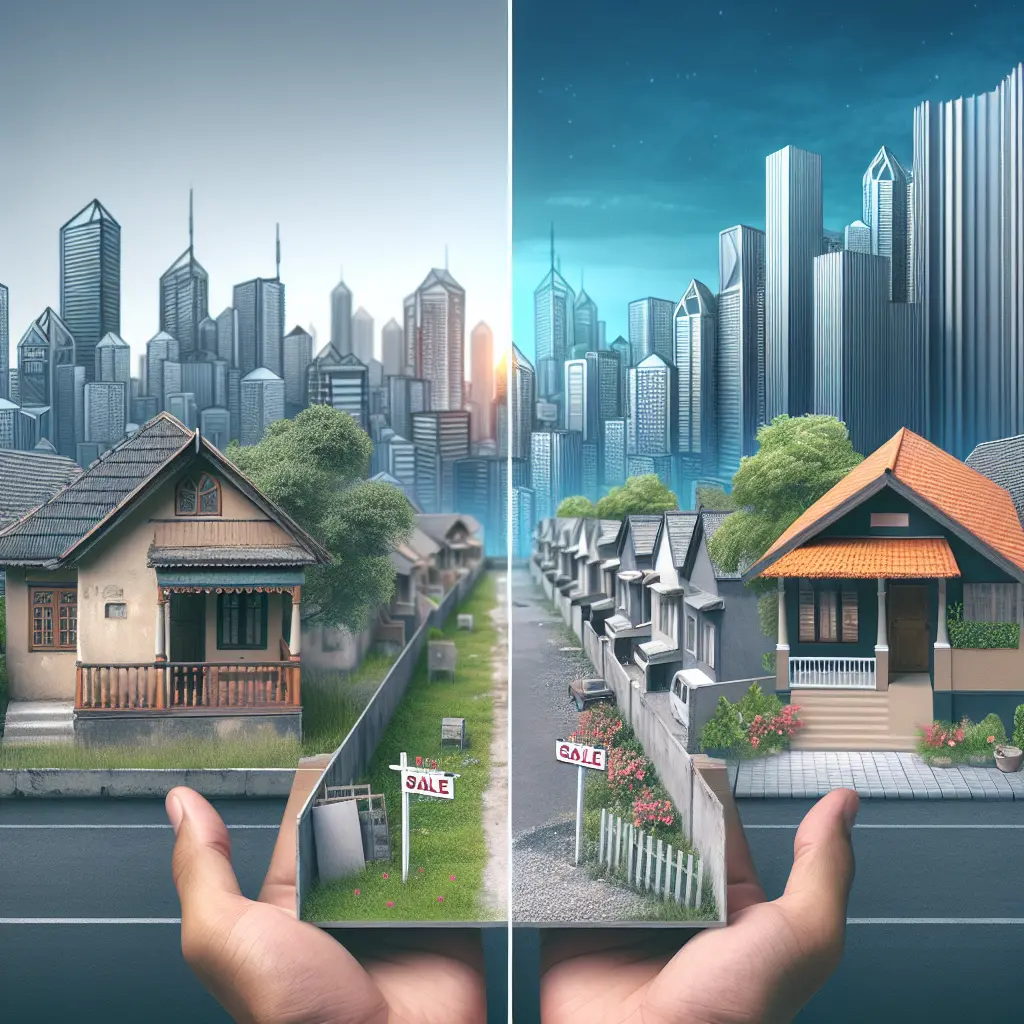
The intricate dance between urban development and residential property values is both fascinating and complex. As cities expand and infrastructures evolve, the implications for housing market dynamics and property investment opportunities are profound. From the bustling cityscapes of Dubai to the burgeoning real estate market in China, urban development leaves a lasting impact on property values, offering a mix of challenges and opportunities to investors and residents alike.
The Ripple Effect of Urban Development on Residential Property Values
Urban development is a multi-faceted phenomenon encompassing city expansion, infrastructure enhancements, and economic growth. One significant facet is the direct correlation between urban development impact and residential property values. As cities grow, the demand for housing increases, often leading to a rise in property prices. This phenomenon is particularly visible in areas experiencing rapid urban growth effects, where real estate market trends frequently mirror the pace of urban expansion.
For instance, infrastructure development, a critical component of urban planning, significantly influences residential property values. Improved transportation networks, utilities, and public services make neighborhoods more attractive to residents and businesses, thereby boosting property values. The economic effects of urban development further amplify this trend by increasing employment opportunities and enhancing the overall quality of life in urban areas.
Recent Developments and Their Impact on Property Value Trends
Economic Dynamics in the UAE: In the UAE, where an impressive Dh18.84 trillion changes hands annually, payment delays have begun to affect the economy, indirectly impacting residential property values. Delays can slow down new developments and affect investor confidence, thereby influencing property value trends within the region (Khaleej Times).
Wealth Migration: A new era of wealth migration is reshaping residential area development globally. Affluent individuals are relocating to regions with favorable tax treatments and real estate investment opportunities, impacting property prices in these locales (Bloomberg).
Tax Breaks in Real Estate: Even without indexation, real estate enjoys more tax advantages than any other asset class. This incentivizes investments in residential properties, sustaining high property values even when other markets might be underperforming (Financial Times).
Market Trends in Canada: In key Canadian markets like the GTA, GVA, and Fraser Valley, experienced buyers and investors are signaling a watershed moment in detached housing markets. This trend underscores the significant influence of seasoned investors on real estate market trends (RE/MAX).
Kalpataru Ltd's IPO: Indian realty firm Kalpataru Ltd's decision to file draft papers to raise up to ₹1,590 cr via an IPO reflects robust confidence in the urban real estate market. Such movements often lead to increased investments and infrastructural developments, subsequently affecting local property values (The Economic Times).
Proptech Innovations in Dubai: The emergence of new proptech startups in Dubai illustrates an integrated approach to real estate management and transaction processes, likely leading to more streamlined operations and potentially enhanced property values (Gulf News).
Global Insights and Market Dynamics
China’s real estate market showcases the complex interplay between urbanization and real estate values. Despite recent price drops, signs of warming in this market suggest a resilient sector capable of rebounding, influenced by broader economic factors like those currently dragging China’s economy (South China Morning Post).
Moreover, events like the Lamudi Property Fair in Cebu highlight burgeoning regional markets offering unique property investment opportunities, attracting both local and international investors looking for lucrative ventures outside traditional urban centers.
Urban Sprawl, Gentrification, and Urban Renewal
The spread of urban sprawl has both positive and negative impacts on property values. While some areas may benefit from lower property prices and more living space, others might suffer from reduced access to essential services and infrastructure. Conversely, gentrification often leads to increased property prices but can also cause displacement of long-standing communities.
Urban renewal projects can rejuvenate decaying urban areas but must be managed carefully to balance development with historical preservation and community integrity. Successful examples of urban renewal demonstrate significant increases in property values post-completion, reflecting the positive side of this complex process.
Conclusion: Navigating the Future Landscape
The future of residential property values in the context of urban development appears robust yet nuanced. As urban planners and developers forge ahead with new projects, understanding the multifaceted impacts of these developments on property prices will be crucial. For potential investors and homeowners alike, staying informed about these trends will be key to navigating the ever-evolving real estate landscape.
As we continue to witness the transformative effects of urban development on residential properties around the globe, it's clear that the dynamics of change are as challenging as they are rewarding.
Thank you for joining me on this exploration of urban development impacts on residential property values. Here’s to finding opportunity in every change!
Felicia Green